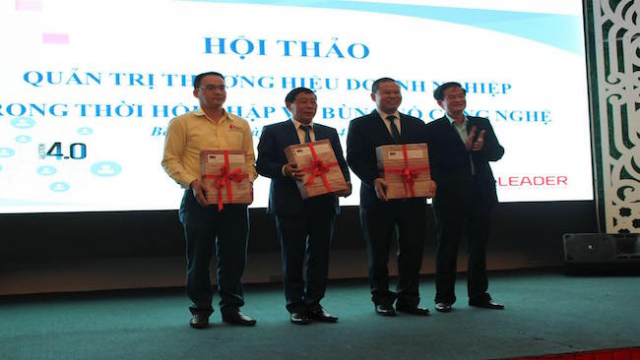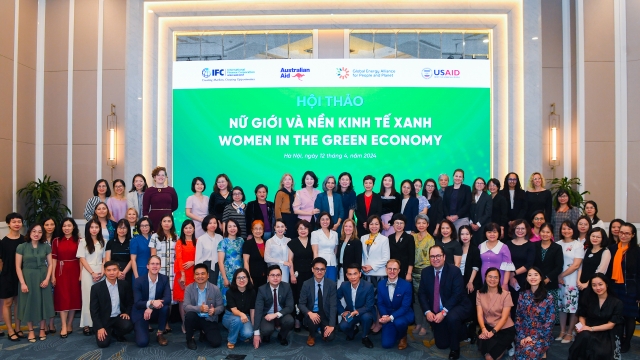National Focus
Foreign enterprises may consider leaving Vietnam due to regulatory restrictions
According to the Asia Cloud Computing Association, such legal restrictions as data localization, business uncertainties from the Law on network information security and lack of data privacy law as well as digital economy taxation may impact negatively to enterprises using cross-border tools and services.
.jpg)
In the context of the fourth industrial revolution, international and Vietnamese enterprises are leveraging information and communication technology (ICT) such as cloud computing, social media, e-payment, and smart technologies to better enable business and participate in cross-border trade.
Taking evidences from the strong interest of international media, organizations and investors in the digital community in Ho Chi Minh City, Executive Director of the Asia Cloud Computing Association (ACCA) Lim May Ann said that the cross-border data flows provide a tremendous opportunity for entrepreneurs and technology innovators in developing countries to build businesses whose influence and revenue sources exceed the national borders.
A recent report of ACCA shows that cross-border data flows allow ViCare to use cloud services to expand the number of services and handle an ever-growing number of site visitors, and attract international venture capital funding.
In logistics, sShip uses Google Maps, and cloud technologies to optimize routes and communication lines between clients. In the tourism sector, Triip.me could connect people from around 600 cities in the world and expand internationally thanks to cross-border data flows.
According to statistics, Vietnam stands to grow its GDP by one per cent per every 20 per cent expenditure on ICT, with mobile internet accounting for 6.2 per cent of GDP and 3.2 per cent of total employment between 2015 and 2020.
The government has targeted average individual e-commerce spending to reach $350 annually, with B2C revenue rising to $10 billion and accounting for five per cent of all retail spend.
Regulatory restrictions remain to be an obstacle
However, while India has become a “digital India” and Japan is targeting to become the world’s top country in information technology, ACCA’s research shows that Vietnam’s legal framework is not as open as four other surveyed countries including India, Indonesia, Japan, and Phillippines.
Accordingly, Vietnam must suffer potential losses from data localization. The Decree 72 imposes requirements on IT companies including online social networks, general information websites, mobile telecoms network-based content services and online games services to establish at least one server inside the country serving the inspection, storage, and provision of information at the request of competent State management agencies.
The Decree 72 could lead to the estimated losses of 1.7 per cent in GDP, 3.1 per cent in domestic investments, and $1.5 billion in consumer welfare losses.
In addition, there are also business uncertainties from the Law on Network Information Security and lack of data privacy law.
ACCA points out that the Law establishes requirements in licensing, cooperating and facilitating state management agencies to take technical measures as needed. These measures can be interpreted as allowing government’s access to encrypted information under the Law on Information Security.
According to this organization, the lack of clarity on what services fall under the law, and the need to provide backdoor access could undermine user and organizational privacy in Vietnam, leading to the negative potential that some companies may consider leaving Vietnam market.
Also, the cross-border taxation policies tend to be more stringent. Vietnam is currently studying the OECD’s BEPS actions 1 on the tax challenges of the digital economy to develop a set of regulations to tax the income derived from Vietnam by digital companies.
A locality of Vietnam – Ho Chi Minh City proposed taxing businesses who earn above $4,000 on Facebook; Ministry of Finance targeting AirBnb, Uber.
According to ACCA, these regulatory requirements could pose a challenge to cross-border data service providers, leaving them to consider entering the Vietnamese market.
Moreover, this could impact negatively to Vietnamese firms having the demand for cross-border tools and services.
Lim May Ann said that with Vietnam’s digital economy still being nascent, the Government needs to take caution in its bids to create an enabling and cyber-safe environment, it does not inadvertently restrict and constrain digital economy growth.
From Vietnamese expert, General Secretary of Vietnam Internet Association Vu The Binh said that there must be policies to promote the development of enterprises using cross-border data flows as well as the growth of domestic industry.New concept of branding in the 4.0 industrial revolution revitalizes enterprises
Resolution 68: A turning point in Vietnam's private sector policy
As Vietnam sets its sights on becoming a high-income country by 2045, Resolution 68 lays a crucial foundation. But turning vision into reality requires not only good policy - but also unwavering execution, mutual trust and national unity.
Vietnam plans upgrade of Gia Binh airport to dual-use international hub
Vietnam plans to upgrade Gia Binh Airport in Bac Ninh province into a dual-use international airport to support both military and civilian operations, the government said on Friday.
Lives under the scorching sun: Outdoor workers racing against climate change
Under unforgiving conditions, the outdoor workers - the backbone of urban economies - endure the harshest impacts of climate change while remaining overlooked by social safety nets. Their resilience and struggles highlight the urgent need for better protection in the face of rising temperatures and precarious livelihoods.
CEO Group chairman unveils guide to Vietnam real estate for foreigners
Doan Van Binh, Chairman of CEO Group and Vice President of the Vietnam National Real Estate Association, introduced his latest book, “Vietnam Real Estate for Foreigners,” at a launch event in Hanoi on Friday.
Women leading the charge in Vietnam's green transition
Acting for increased women’s participation and leadership in climate action, Vietnam can accelerate a transition that is more inclusive, just, and impactful.
Steam for girls: A journey of passionate and creative girls
The "Steam for girls 2024" competition provides a creative platform for Steam and an opportunity for students to connect with peers from various regions within Vietnam and internationally.









































